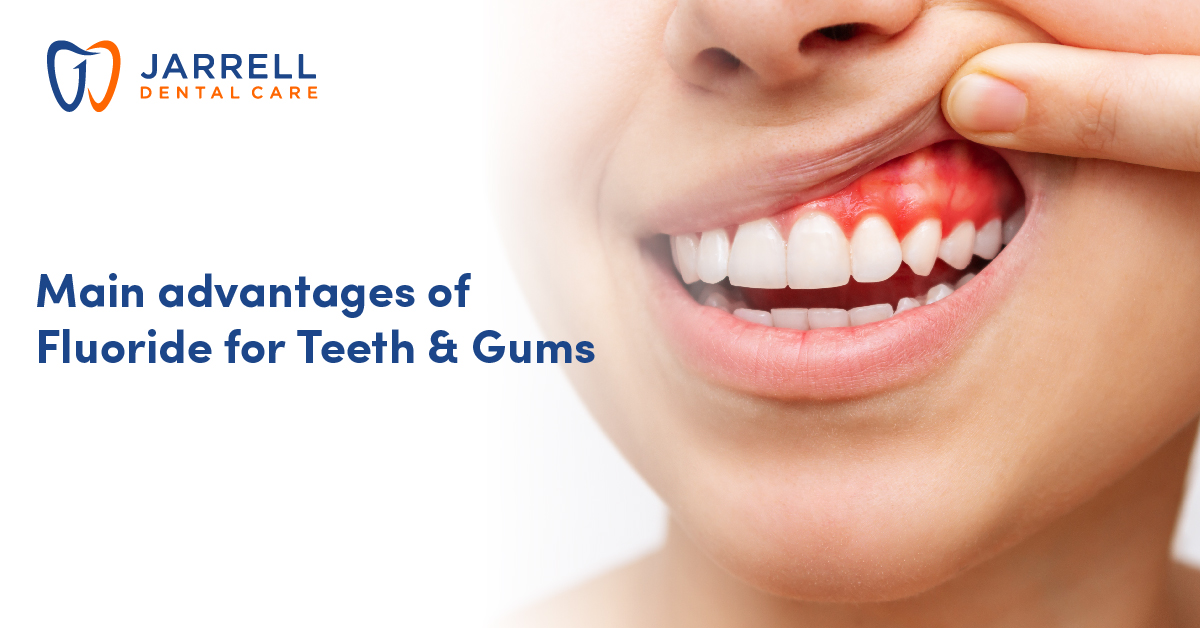Naturally occurring fluoride can be found in water, soil, and even some foods.
Drinking fluoridated water helps keep teeth healthy and reduces the risk of cavities by about 25 percent. Using fluoride products at home in addition to regular dental visits can greatly enhance the effectiveness of cavity prevention. Used as a Natural Preventative, Fluoride is now present in the majority of U.S. public water systems. It can also fortify teeth so they’re less vulnerable to things like acid produced by bacteria in your mouth.
Along with drinking water and food you can get fluoride from toothpaste and mouthwash, and though fluoride is good for your dental health, having it too much can cause harm too. Find out what it is and the proper way to use it.
When and where can you find fluoride?
Acids produced by oral bacteria and sugars dissolve tooth enamel, causing mineral loss. Fluoride is a naturally occurring mineral that helps make teeth more resistant to harmful acids, making it one of the best ways to prevent the breakdown of tooth enamel. Early decay can be reversed and mineral reabsorption to the enamel can be sped up with the help of fluoride.
You can also read : Preparing for tooth extraction
Brushing improperly, not brushing at all, eating certain foods, and forgetting to floss are some of the factors that contribute to mineral gain and loss in tooth enamel on a daily basis. Remineralization is the process by which minerals like calcium, phosphate, and fluoride are restored to the enamel from the water and food you consume. When demineralization exceeds the rate of remineralization, cavities can form in the teeth.
As we know both food and water contain trace amounts of fluoride. This mineral can also be found in fluoride-containing dental hygiene products. A higher concentration of a fluoride is available as a foam, gel, or varnish, to be used topically on your teeth, but you should only use it as per your dentist’s prescription. This therapy has a significantly higher fluoride concentration than typical OTC dental care items.
How Does Fluoride Help Your Teeth?
Fluoride is a vital mineral for maintaining healthy teeth and gums, and it can be obtained either through drinking water or by using dental hygiene products.
Among the many advantages of fluoride are:
- Prevents Sensitivity When enamel breaks down, it can make teeth more sensitive to everyday stimuli like hot and cold drinks. One of fluoride’s primary benefits is that it helps keep tooth enamel healthy. Using fluoride toothpaste after each brushing can help preserve and strengthen tooth enamel.
- Minerals in Your Teeth Are Restored Fluoride facilitates remineralization and helps repair mineral loss of enamel of your teeth which happens due to presence of plaque that produces acids which can slowly erode enamel.
- Stops the acid production Fluoride prevents acid production in your mouth that happens due to bacteria and sugars and prevents tooth decay and cavities and proves to be an effective weapon.
- Helps You Prevent Expenditure on Expensive Procedure The cost of dental care varies widely. Use of fluoride and other preventative measures can reduce the need for dental work in the long run. Consult your dentist about fluoride treatments if you are worried about the condition of your teeth.
Teeth decay and other oral health issues can be avoided by simply drinking water from the tap. Fluoridated water makes it as simple as drinking water to do your part in maintaining healthy teeth.
Conclusion
When used properly, fluoride is safe and effective, but excessive amounts can be harmful. Keep these items locked up and out of the reach of anyone younger than six years old. Excessive consumption is also linked to fluorosis, a condition characterized by white streaks or spots on the enamel. Get in touch with the helpful staff at Jarrell Dental Care today to learn more or make an appointment.


